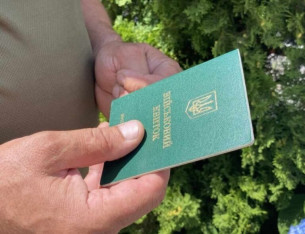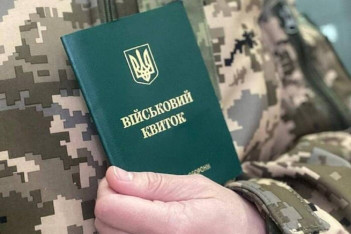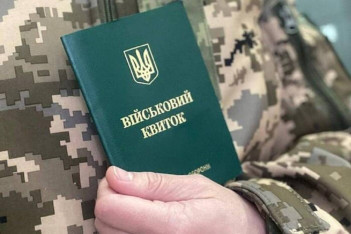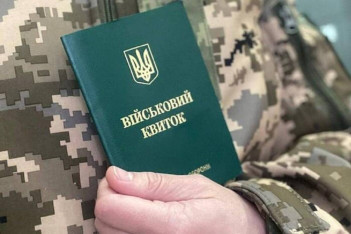Deferral of prisoners
Deferral of prisoners of war is an important aspect of modern military law. According to international agreements and national legislation, prisoners of war have certain rights that provide them with protection, including the possibility of receiving a deferral from military service. This issue requires careful legal assessment and consultation, since collecting the necessary evidence, understanding the legal nuances and correctly submitting an application can affect the outcome of the case. The importance of professional legal assistance in this process cannot be overestimated, as it helps to correctly interpret the legislation and ensure compliance with the client's rights.
Legal stages of prisoner deferment
The process of deferment of prisoners is one of the important aspects in jurisprudence, which requires in-depth knowledge of legislation and practical skills. The main stages that a lawyer goes through when providing this service include:
- Assessment of the client's situation: The lawyer collects all the necessary documents, studies the circumstances of the case and determines the possibilities for submitting an application for postponement.
- Legal consultation on the postponement of prisoners: Conducting a consultation with the client to explain his rights, obligations and possible consequences.
- Preparation of documents: The lawyer for the suspension of prisoners prepares the necessary documents, such as statements, petitions, additions to the case materials.
- Submission of an application to a court or other body: lawyers for the postponement of prisoners draw up and submit applications for a postponement to the relevant body (court, prosecutor's office, executive service).
- Case support: Preparation for meetings, participation in them, representation of the client's interests.
- Obtaining a decision and its implementation: Issuance and implementation of a decision on postponement, assistance in further actions.
Properly organized stages of legal support help to effectively resolve the issue of deferral of prisoners of war. And the diligence and qualifications of the lawyer determine success in such cases.
Under what conditions can the prisoner deferment service be provided?
Legal assistance in obtaining a deferral of prisoners of war is possible only under certain conditions:
- Compliance with legal requirements: The client meets the criteria established by law to receive a deferment (for example, severe financial conditions, medical indications, etc.).
- Documentary confirmation: Availability of documents confirming the circumstances that are the basis for the postponement.
- Timely submission of the application: The application was submitted before the expiration of the deadlines established for the possibility of obtaining a postponement.
- Correct form and content of documents: Submitted documents must be completed and executed in accordance with established requirements.
It is important to understand that only compliance with all conditions allows you to reliably implement such a legal opportunity.
Under what conditions can the prisoner deferment service not be provided?

Non-compliance with the law: The client does not meet the criteria for receiving a deferral, defined by the law.

Missing deadlines: If the application is submitted after the expiration of the deadlines for submitting such an application.

Violation of formal requirements: Incorrect processing of documents or submission of them to the wrong authority.
How to obtain a prisoner deferment on your own?
In order to understand the issue of deferment of prisoners on your own, it is recommended:
- Familiarize yourself with the legislation: Study the main laws and regulations governing deferrals.
- Consult with specialists: Read consultations and advice from lawyers on official resources or specialized forums.
- Analyze similar cases: Check out the examples of solving similar cases available in legal databases.
- Prepare the necessary documents: Check which documents are required for submitting the application and prepare a list of documents for deferment of completed them according to the requirements.
Independently obtaining a reprieve for a prisoner requires in-depth familiarity with the legislation and appropriate documentary confirmation of the grounds. But to avoid mistakes and ensure maximum results, contacting a lawyer will be the most effective option.
Frequently asked questions about deferment for prisoners
Question
What documents are required for deferred payment?
Answer
It is usually necessary to submit an application, medical certificates, documents on financial status and other supporting documents.
Question
How to find a lawyer on deferred compensation?
Answer
To find a lawyer who specializes in late payment, try these steps: Contact law firms or agencies that specialize in financial matters and debt. Check online lawyer review platforms. Consider referrals from friends or family who may have had similar experiences. Call or send inquiries to lawyers to learn about their experience and terms of cooperation. During consultations, check whether they have experience with your financial issues and deferred payments.
Question
How much does a legal consultation on the postponement of imprisonment cost?
Answer
Legal fees The cost of a deferred payment consultation can vary significantly depending on the region and the lawyer's experience. Some lawyers may offer fixed rates for specific services or comprehensive consultations. It should be taken into account that the cost may also depend on the complexity and urgency of the case. It is recommended to clarify the prices and conditions with several lawyers in order to choose the most suitable option.
Cost of prisoner deferment service
The price of the service for obtaining a reprieve for prisoners may depend on several factors. First, it is the complexity of a specific case, in particular, the need to collect and analyze large volumes of documents or the presence of legal disputes. Secondly, the experience and qualifications of the lawyer are important, because highly qualified specialists may require a higher fee for their services. In addition, the cost may vary depending on the urgency of the service, as well as whether representation is required in judicial or administrative bodies.
ConclusionThe process of obtaining a reprieve for persons who were in captivity is complex and requires a detailed study of legal norms and procedures. Legal assistance in such cases is indispensable, as a professional can correctly assess the situation, prepare the necessary documents, and represent the client's interests before the relevant authorities. It is important to contact lawyers specializing in prisoner rights to ensure timely and correct registration of the draft deferment.




































